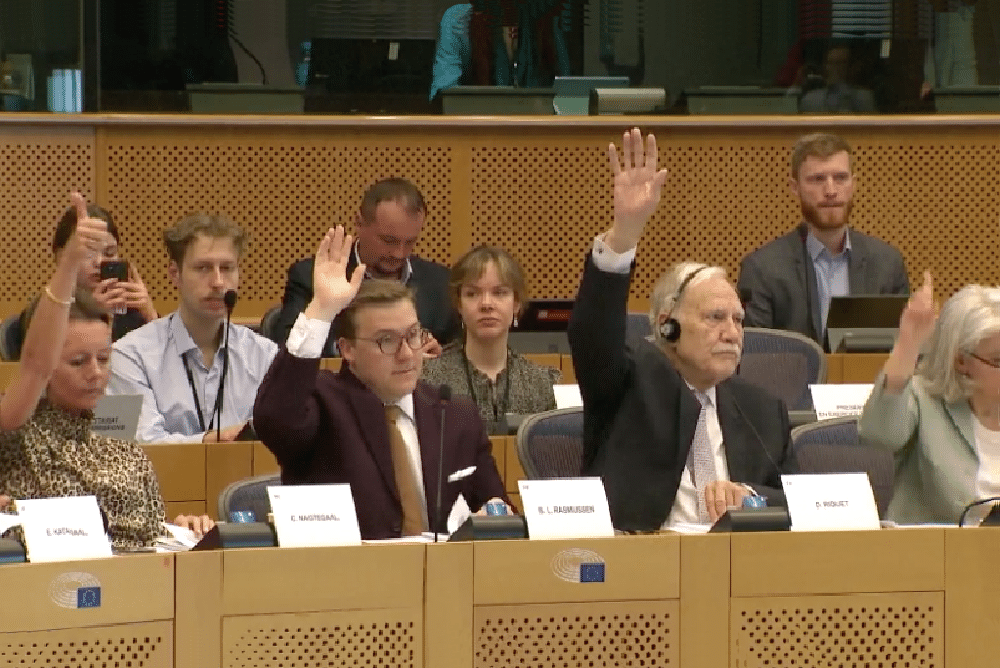Major EU transport infrastructure projects should focus more on sustainable transport, avoid delays and establish links with Ukraine and Moldova, say transport MEPs.
On Thursday, the Transport and Tourism Committee adopted its position on the review of trans-European transport (TEN-T) rules. This is the EU’s plan to build a network of railways, roads, inland waterways and short sea shipping routes connected through ports and terminals across the European Union. Current TEN-T projects range from Rail Baltica, connecting Helsinki and Warsaw, to Brenner Base Tunnel, linking Austria and Italy, or the Lisbon–Madrid high-speed rail line.
Sustainable transport
The Transport and Tourism Committee advocate for unified technical and operational standards for each transport mode and stress that intermodal transport should be primarily done by rail, inland waterways or short-sea shipping, while any initial and/or final legs can be carried out by road. This should translate into fully electrified railways in the core TEN-T network, running with at least of 160 km/h passenger and 100 km/h cargo trains, which could cross internal EU borders in less than 15 minutes by the end of 2030.
MEPs ask member states to adopt sustainable urban mobility plans by the end of 2025 to integrate different transport modes, including cycling or active mobility, reduce congestion and improve road safety. This plan should become one of the conditions to get EU funding.
No delays
MEPs reaffirm a need to complete major transport infrastructure projects by the end of 2030 on the core TEN-T network, and by the end of 2050 on a comprehensive network focussed particularly on eliminating bottlenecks and missing links and better empowering 11 European Coordinators. To incentivise a quick roll-out of these projects, MEPs support the introduction of an intermediary deadline of 2040. In the event of a significant delay, MEPs suggest the Commission should immediately launch an infringement procedure and reduce or terminate funding.
Partnership with third countries and military mobility
Following Russia’s war against Ukraine, the Transport Committee backed cutting transport infrastructure projects with Russia and Belarus and enhancing instead the partnership with Ukraine and Moldova. MEPs also want EU governments to exclude non-EU businesses from participating in major TEN-T projects, if the Commission deems them to be a security risk.
When constructing or upgrading TEN-T infrastructure, EU countries would have to ensure seamless transfer of military troops and material within the EU, say MEPs. Within one year after the new rules enter into force, the Commission would conduct a study on short-notice large-scale movement to facilitate military mobility planning.
Quotes
Co-rapporteur Barbara Thaler (EPP, AT) said: “Everybody is talking about shifting transport to rail. However, while cars, trucks or planes can cross EU borders without any problems, trains, especially cargo ones, are forced to stop at borders, sometimes for hours, to adapt to the requirements of different member states. That is why it is particularly important to ensure that rail border crossings should take no more than 15 minutes, and there should also be slots for freight trains allocated across borders. It is ambitious, but necessary if we want to succeed in shifting traffic from road to rail.”
Co-rapporteur Dominque Riquet (Renew, FR) added: “Transport infrastructure is essential, serves as the backbone of our economy and prosperity, while increasing cohesion and contributing to achieving the Union’s climate targets. However, we are facing too much delay on the ground; Europe is starting to lag behind our international competitors, and the Union is suffering from too little investment and a lack of political will from the member states. As such, Parliament will make sure that we have a TEN-T regulation which works and delivers for our businesses and citizens.”
Next steps
The draft negotiating mandate was approved by 44 votes in favour, none against and one abstention. Transport Committee MEPs also unanimously (44 votes in favour) backed a decision to start talks with member states on the final shape of the legislation, once plenary gives its green light next week.









